How has India changed a year after Dadri beef lynching?
- Published
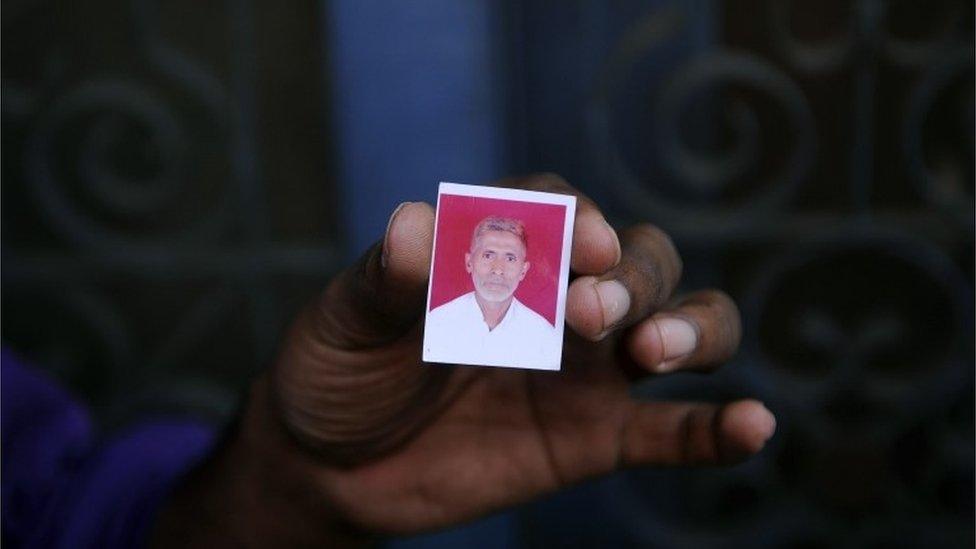
Mohammad Akhlaq was a farm worker
It has been a year since a Muslim man in northern India was lynched over rumours that his family had slaughtered a cow and eaten beef. Hindus consider cows to be sacred, and for many, eating beef is taboo. The slaughter of cows is also banned in many Indian states.
But Mohammad Akhlaq's death sparked widespread outrage and contributed to changing the social and political discourse of the country. The BBC's Ayeshea Perera looks at some of the most significant things that happened in India following his death.

The 'intolerance' furore
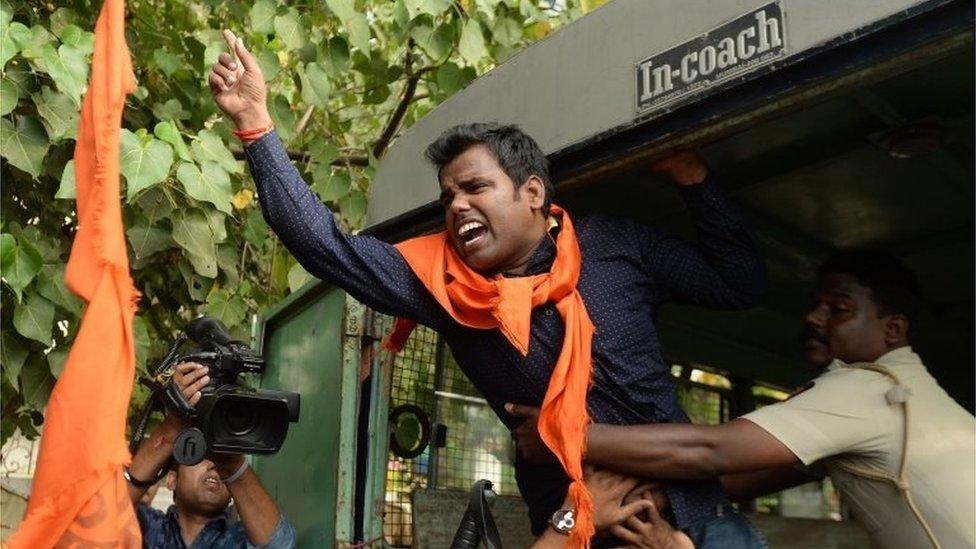
The government began to be haunted by allegations of intolerance
Perhaps the largest fallout of Mohammad Akhlaq's death in Uttar Pradesh state was the accusation of "intolerance" that began to haunt Prime Minister Narendra Modi's ruling Hindu nationalist BJP.
Critics of the BJP have often accused it of being Hindu majoritarian in its outlook and of being hostile to ethnic and religious minorities, particularly Muslims. And this incident only strengthened those voices.
The fact that Mr Modi did not immediately condemn the incident, choosing to remain silent even as state party leaders jumped to the defence of the accused, caused even more anger.
It prompted an unprecedented movement by writers and poets who had been celebrated by the government - they started returning their prestigious Sahitya Akademi awards to protest at intolerance in India. More than 40 writers from all across the country returned their awards and were soon joined by a group of film makers who said they would not be "guilty of flattening diversity" in the country.
Leading writer Nayantara Sehgal, a niece of India's first prime minister Jawaharlal Nehru, wrote that "… India's culture of diversity and debate is now under vicious assault… The prime minister remains silent about this reign of terror. We must assume he dare not alienate evil-doers who support his ideology."
But "intolerance" was not limited to returning awards - it found its way into popular discourse as well. Bollywood superstar Amir Khan also created a furore when he expressed concern over the "growing intolerance" in India. He was later joined by fellow star Shah Rukh Khan who said he "respected" people returning awards to protest against intolerance.
Later, the arrest of a student leader from India's prestigious Jawarhalal Nehru University on sedition charges over a rally condemning the hanging of a man convicted of attacking the Indian parliament also sparked cries of "intolerance" on a massive scale.

The BJP loses Bihar
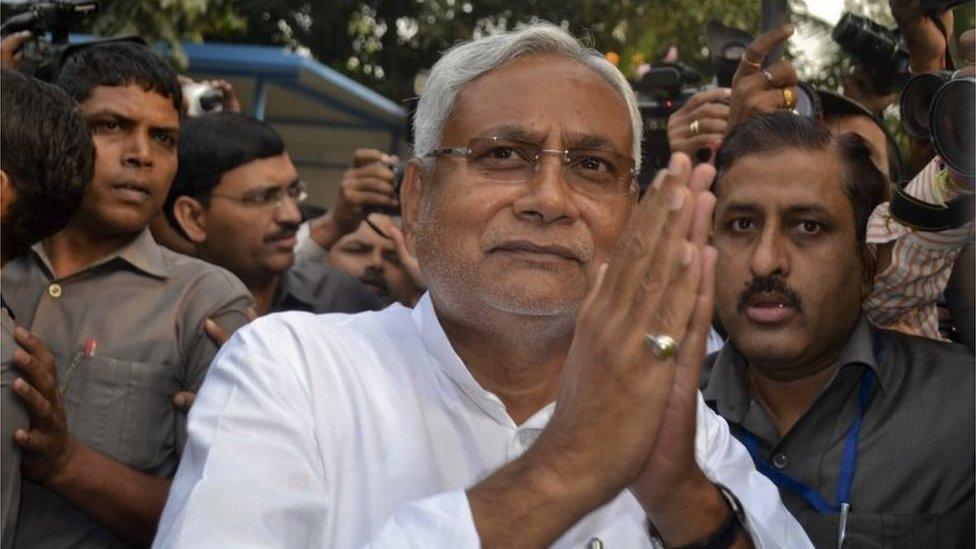
Nitish Kumar led an alliance which defeated PM Narendra Modi's BJP in the Bihar polls
A second outcome that can be linked back to the Dadri killing is that the BJP went on to lose state elections in the neighbouring northern state of Bihar - a poll it was widely expected to win.
Incumbent chief minister Nitish Kumar, who was on his second term, had already suffered a crushing defeat to Mr Modi's party in the 2014 parliamentary elections, and another "Modi wave" was expected to sweep the state elections as well.
But in a masterstroke, Mr Kumar and his allies positioned themselves as a "secular" alliance, in direct opposition to the "communal" BJP.
The fact that Mr Modi and BJP party chief Amit Shah raised the sensitive issue of cow slaughter and consumption of beef during election rallies in the state also did not seem to help.
When Mr Kumar's party won, it was called a "historic verdict" and hailed as proof that running a poll campaign along religious and ethnic lines would not bring results.

The rise of cow protection vigilante groups
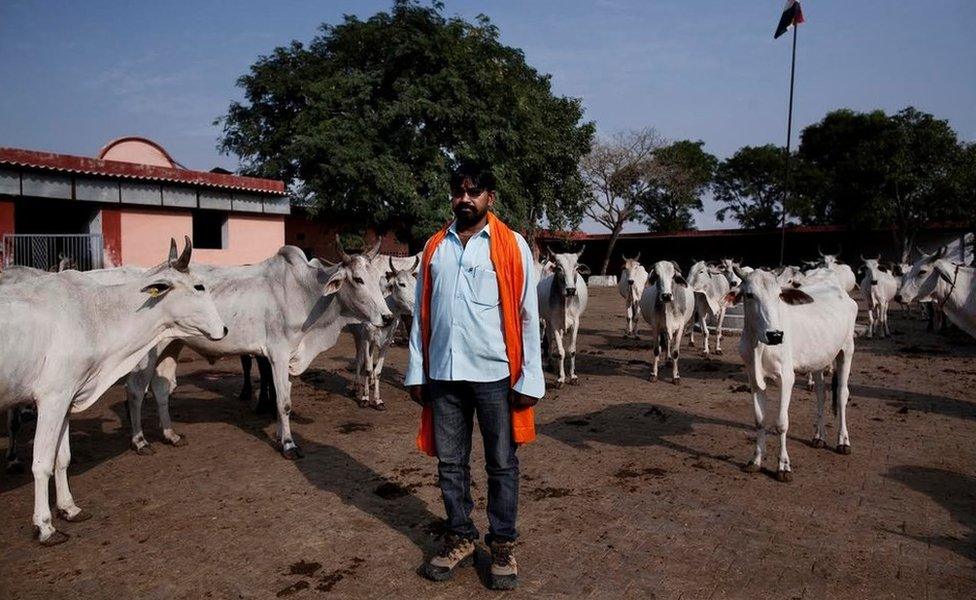
These self styled cow protectors created headlines after they lay in wait for and then badly beat up a number of truck drivers transporting cattle for slaughter
The death of Mr Akhlaq seemed to put new focus on "cow protection" groups who took it upon themselves to ensure that cattle would not be slaughtered or consumed.
Mostly members of militant Hindu groups like the Bajrang Dal, Vishwa Hindu Parishad (World Hindu Council) and Shiv Sena, these self-styled cow protectors created headlines after they lay in wait for and then beat up a number of truck drivers transporting cattle for slaughter.
In another attack, two Muslim woman were beaten up after they were accused of carrying beef. And most significantly, in an incident which led to massive caste unrest, four low-caste Dalit men trying to skin a dead cow were thrashed by vigilantes in the western state of Gujarat.
A video of the incident went viral and led to huge protests and an uproar in parliament.
After again being accused of silence, Mr Modi used a radio address almost a full month later to criticise vigilante attacks, saying such people made him "angry", and any attacks must be investigated.

Eating as an act of defiance
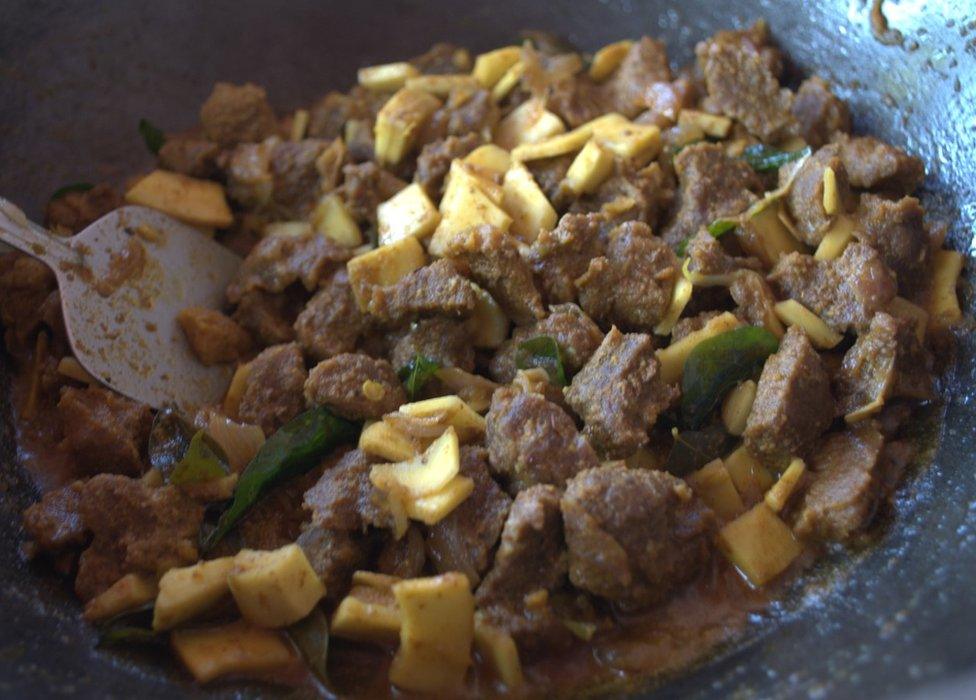
Beef fry is an essential part of the diet in south India's Kerala state
The right to eat beef became another huge talking point in the wake of the Dadri attack.
Confusion over whether the meat believed to have been in the possession of Mr Akhlaq's family was beef or mutton set off a debate over the right of people to eat what they want.
A ban on beef in several Indian states has also been criticised because the meat is cheaper than chicken and fish and is a staple for the poorer Muslim, tribal and Dalit (formerly untouchable) communities.
A police raid at the canteen of a Delhi guesthouse owned by southern Kerala state over its famed beef curry created an uproar, with politicians from the state protesting against what they saw as a violation of their culture. It also set off a social media campaign, with many users uploading pictures of them eating beef and daring police to arrest them.
According to government data, some 80 million Indians - one in every 13 - eat beef or buffalo meat. Most of them are Muslims. But more than 12 million Hindus also eat the meat.